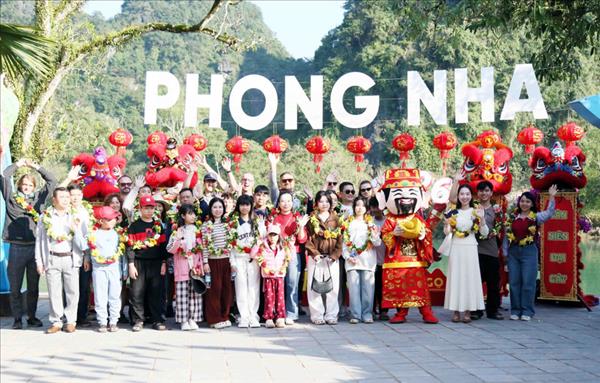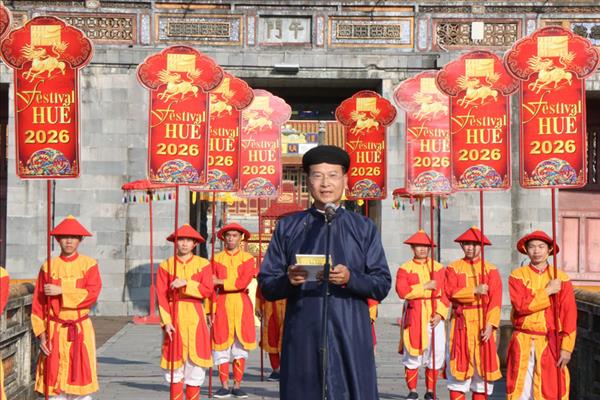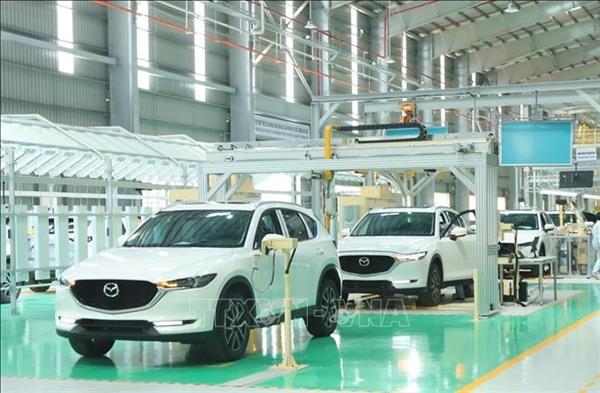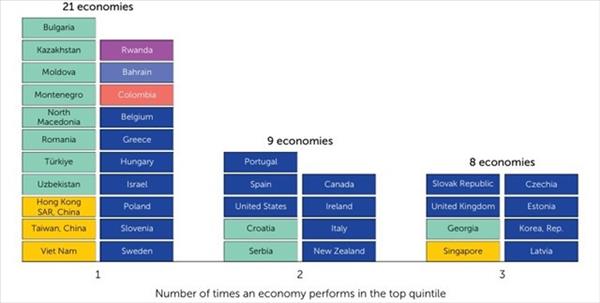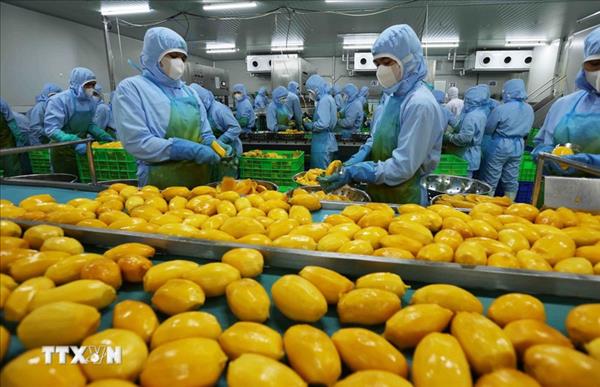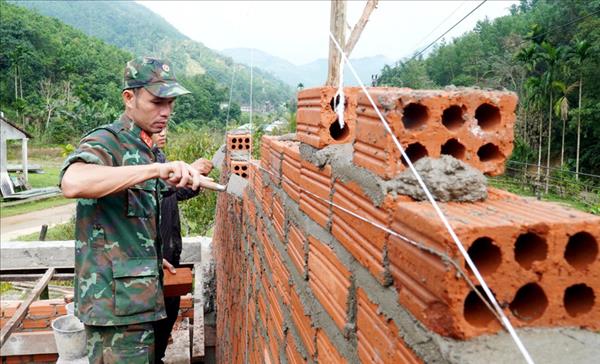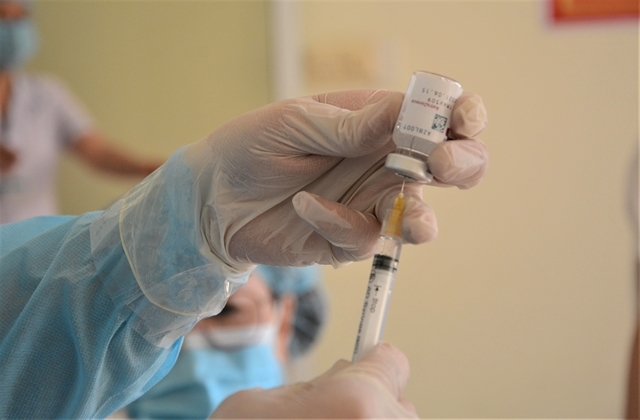 A vial containing COVID-19 vaccine to be administered in Da Nang's Lung Hospital. Photo: VNS/VNA |
A further 4,793 people received COVID-19 vaccines on Saturday in Vietnam, bringing the country’s total to 10,041, according to a Sunday morning announcement from the National Expanded Programme on Immunisation.
Vietnam started its national vaccination drive on March 8, using doses from the first batch of 117,000 doses of Oxford/AstraZeneca that arrived in the country on February 24.
The first to be inoculated are those on the frontline against the pandemic – doctors, nurses directly treating COVID-19 patients, medical workers who collect clinical samples and test for COVID-19, contact tracers, and members of community anti-COVID-19 groups.
The northern province of Hai Duong, the epicentre of Vietnam’s third wave of infections (starting January 25) which has recorded more than 700 local cases to date, leads the list of 12 localities that have started COVID-19 vaccination campaigns with 6,287 people vaccinated so far.
Hai Duong is focusing inoculation in six ‘hot spot’ localities – Hai Duong City and five districts of Cam Giang, Chi Linh, Nam Sach, Kinh Mon, and Nam Thanh – while the remaining localities will begin their vaccination campaign on March 17.
The province received 33,000 doses, the largest portion of the 117,000-dose batch.
The northern province of Hung Yen and Bac Giang followed in second and third places, with 840 and 823 people. HCM City has given the jabs to 774 people, while Hanoi has vaccinated 163.
Initial reports from the vaccination sites indicate no serious post-injection reactions.
Local health authorities ordered all those scheduled to get the COVID-19 vaccine jabs to fully declare their health conditions to vaccine administrators.
According to deputy health minister Tran Van Thuan, the COVID-19 vaccination campaign in Vietnam aims to be safe at the highest level in all steps along the way, especially the screening and medical check-ups prior to vaccination.
Vaccinated people also must remain at the vaccination sites for 30 minutes to see if they have any health problems and are asked to self-monitor and report abnormal issues for the next 1-2 days.
Each of the vaccinated is issued a QR code, which is derived from their own health insurance ID card and is updated to the personal medical records for follow-ups as well as the booster shot notification, according to Thuan.
The vaccinated will also be regularly examined to evaluate the immunogenicity of the AstraZeneca vaccine.
Vietnam started its national vaccination drive on March 8, using doses from the first batch of 117,000 doses of Oxford/AstraZeneca that arrived in the country on February 24.
The first to be inoculated are those on the frontline against the pandemic – doctors, nurses directly treating COVID-19 patients, medical workers who collect clinical samples and test for COVID-19, contact tracers, and members of community anti-COVID-19 groups.
The northern province of Hai Duong, the epicentre of Vietnam’s third wave of infections (starting January 25) which has recorded more than 700 local cases to date, leads the list of 12 localities that have started COVID-19 vaccination campaigns with 6,287 people vaccinated so far.
Hai Duong is focusing inoculation in six ‘hot spot’ localities – Hai Duong City and five districts of Cam Giang, Chi Linh, Nam Sach, Kinh Mon, and Nam Thanh – while the remaining localities will begin their vaccination campaign on March 17.
The province received 33,000 doses, the largest portion of the 117,000-dose batch.
The northern province of Hung Yen and Bac Giang followed in second and third places, with 840 and 823 people. HCM City has given the jabs to 774 people, while Hanoi has vaccinated 163.
Initial reports from the vaccination sites indicate no serious post-injection reactions.
Local health authorities ordered all those scheduled to get the COVID-19 vaccine jabs to fully declare their health conditions to vaccine administrators.
According to deputy health minister Tran Van Thuan, the COVID-19 vaccination campaign in Vietnam aims to be safe at the highest level in all steps along the way, especially the screening and medical check-ups prior to vaccination.
Vaccinated people also must remain at the vaccination sites for 30 minutes to see if they have any health problems and are asked to self-monitor and report abnormal issues for the next 1-2 days.
Each of the vaccinated is issued a QR code, which is derived from their own health insurance ID card and is updated to the personal medical records for follow-ups as well as the booster shot notification, according to Thuan.
The vaccinated will also be regularly examined to evaluate the immunogenicity of the AstraZeneca vaccine.
VNS/VNP

